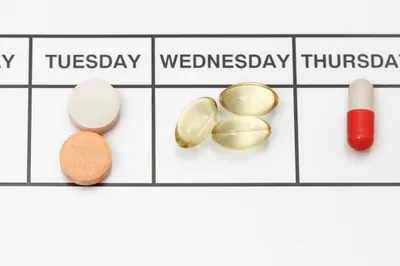For those living with lupus, an autoimmune disorder that causes the body’s immune system to attack healthy organs and tissues, life includes chronic inflammation and pain (of the skin, joints, brain, heart, lungs, kidneys, and blood cells).
However, with treatment, awareness, and certain lifestyle changes, lupus symptoms can be lessened and managed, helping patients live healthier, more productive lives.
Here are ten lifestyle tips for lupus patients…
1. Regular Medical Check-ins
Lupus, like most autoimmune disorders, has periods where symptoms flare up and periods of no symptoms (or quietly active periods). If you feel major symptoms (i.e., headache, joint pain or swelling, fatigue, face rash, lesions, chest pain and shortness of breath, and fever) or a flare up coming on, check in with your doctor. However, regular check ups are also vital to schedule routine check ups to monitor energy levels, pain, and examine the body for infection. Remember lupus cases vary radically from patient to patient.
2. Identify Lupus Triggers
You know that most lupus sufferers succumb to flare ups—durations of worsening symptoms followed by periods with no symptoms at all. However, flare ups can also be tracked by triggers, or stressors, that cause lupus symptoms to emerge. Every patient has different symptom triggers, however the most common include sun exposure, certain foods, emotional stress, low immunity, or a cold or infection. By identifying common triggers, you can do your best to avoid them so not to aggravate a flare up of symptoms.
3. Avoid Sun Exposure
If you suffer from lupus, your doctor likely warned you to avoid sun exposure as much as possible. Although small amounts of sun may be tolerable, the majority of lupus patients react negatively to direct sun exposure. Not to mention that many lupus medication cause sun sensitivity and risk of sunburn. If you must be exposed to the sun, wear maximum strength UVB and UVA-protective sunblock at all times, wear a large brimmed hat, and shield the eyes with polarized, full-coverage sun glasses.
4. Prevent Infection
Because lupus causes a negative immune system response to the body already, it makes sense that lupus patients are prone to contracting germs, viruses, and infections. This is why lupus patients are advised to avoid large crowds, large public places, and contact with friends and loved ones suffering from a cold or viral infection. If you must venture out to a crowded area, where a face mask, avoid contact, and always wash and sanitize your hands thoroughly to avoid potential contagions.
5. What’s That, Body?
If you have lupus, your doctor has likely told you to be aware of what you’re body is trying to tell you. Listening to your body means rather than ignoring aches and pains to rest when you are fatigued, relax if you feel run down, and visit your doctor if concerns, lingering or worsening symptoms, or suspected infections crop up.
6. Consume Healthy Meals and Snacks
Maintaining a nutritious and fueling diet is very important for lupus patients. There are certain foods (i.e., like tomatoes, red meat, or alfalfa sprouts) that may trigger your symptoms. While a balanced diet, featuring all the major food groups (i.e., fatty fish, fresh fruits and vegetables, diary, and complex carbohydrates) is important to help the immune system ward off infection. Oftentimes, lupus medications (primarily steroid drugs) can cause bone deterioration, which is why consuming foods high in calcium and vitamin D (i.e., cheese, yogurt, and dark-leafy greens) can prevent bone thinning and osteoporosis.
7. Stay Active
Battling constant bouts of weakness and fatigue can be mentally and physically exhausting. However, staying active—even if it’s just daily a walk or gentle yoga practice—can decrease stress (a common symptom trigger) and relieve chronic fatigue, headaches, inflammation, and joint pain common to lupus sufferers.
8. Butt Out
Smoking is never a beneficial health habit regardless of your medical history. However, those suffering from lupus have been linked to exacerbating symptoms—particularly by limiting blood circulation, worsening stress, and instigating heart and lung problems. If you smoke and are diagnosed with lupus, talk to your doctor about effective ways to butt out for good.
9. Monitor Medication
With an autoimmune condition, like lupus, it’s common for your doctor to prescribe multiple medications (i.e., steroids) to treat symptoms. This is why paying close attention to all medications is vital, especially if you see multiple healthcare professionals. An up-to-date medication journal will ensure proper daily dosage, timely prescription refills, and ensure you’re not combining contradictory medications with adverse effects.
10. Self-Education
As a patient with lupus, it makes sense that you’d want to discover as much as possible about your condition to help you mange and maintain a healthy, productive life. Education with the help of your doctor, a lupus support group, or a professional lupus organization can dispel fear, depression, again valuable insight, and help you realize that you are not alone in your health battle.













